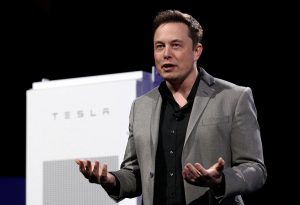Rosario: Individual lifestyle changes won’t stop climate change
A United Nations report on climate change calls for a massive worldwide decrease in greenhouse gas emissions. Personal changes like using less plastic aren’t the answer.
October 15, 2018
The potentially catastrophic effects of climate change are not a distant reality.
A recent exhaustive report from the United Nations Intergovernmental Panel on Climate Change — written by 133 authors and citing more than 6,000 peer-reviewed research articles — says we may only have 12 years to keep the effects of global warming under control. That would require countries to fulfill the highest goals of the Paris Climate Agreement and cap the rise in average global temperature at 1.5 degrees Celsius (2.7 degrees Fahrenheit) above preindustrial levels.
There is a big difference between 1.5 degrees Celsius and even 2 degrees Celsius, the latter of which will almost certainly result in global food shortages, climate refugees, and the destruction of ecosystems. Maize harvests would decline by more than double. The percentage of the global population exposed to severe heat at least once every five years would more than double. Sea levels would rise by an additional 2 inches, putting another 10 million people at risk of coastal flooding.
The U.N. report says that efforts to stop this trajectory must be swift and broad-ranging. To stay at 1.5 degrees Celsius of global warming, countries must slash greenhouse-gas emissions by 45 percent below 2010 levels by 2030. This goal is especially lofty, considering that greenhouse-gas emissions have increased since 2010.
Just 100 companies are responsible for 71 percent of the world’s greenhouse-gas emissions since 1988, according to a Carbon Majors Report. And yet, it seems our conversations on mitigating climate change have not shifted from blaming individuals.
CNN recently tweeted, “Scared by that new report on climate change?” with a list of what individuals can do to help, such as eating less meat, taking a bus or train instead of a car or plane, and upgrading to efficient appliances. Another quotes information from the U.N. report and “begs” people to eat less meat and dairy, with thousands of retweets and likes.
RELATED: Helton: Climate change will create an enormous refugee crisis
We should all try to use less plastic, skip animal products, and use less fossil-fuel energy when we can. Individual efforts have measurable benefits, according to a Carbon Footprint Fact Sheet from the University of Michigan. For example, eating chicken instead of beef for one year leads to an annual carbon footprint reduction of 882 pounds CO2e. Running the washing machine on “cold” reduces CO2 emissions somewhere between 1.2 and 14.9 pounds per laundry load, depending on washing-machine type and electrical source.
But we are fooling ourselves by blaming the rapidity and direness of climate change on individual consumers. The only individual action that truly matters to fight climate change is voting for politicians who care. For decades, corporations have gone unchecked in their degradation of ecosystems and their influenced in politics to enable them. On Sunday, President Trump’s top economic adviser, Larry Kudlow, said that the U.N. report, despite its sweeping data, was an “overestimate.” This summer, 229 representatives voted to denounce a carbon tax, a resolution that called such a tax “detrimental” to the U.S.
This is not to say that taking personal responsibility for your carbon footprint is pointless. But if you don’t want the U.N. reports to become a reality, walking to work instead of driving won’t be enough. Contact your representatives and vote for the ones who recognize climate change as a scientifically legitimate concern. The most critical change must happen at an industrial, policy-driven level — not an individual one.
RELATED: Rosario: WOTUS reaction shows anxiety over federal regulation






